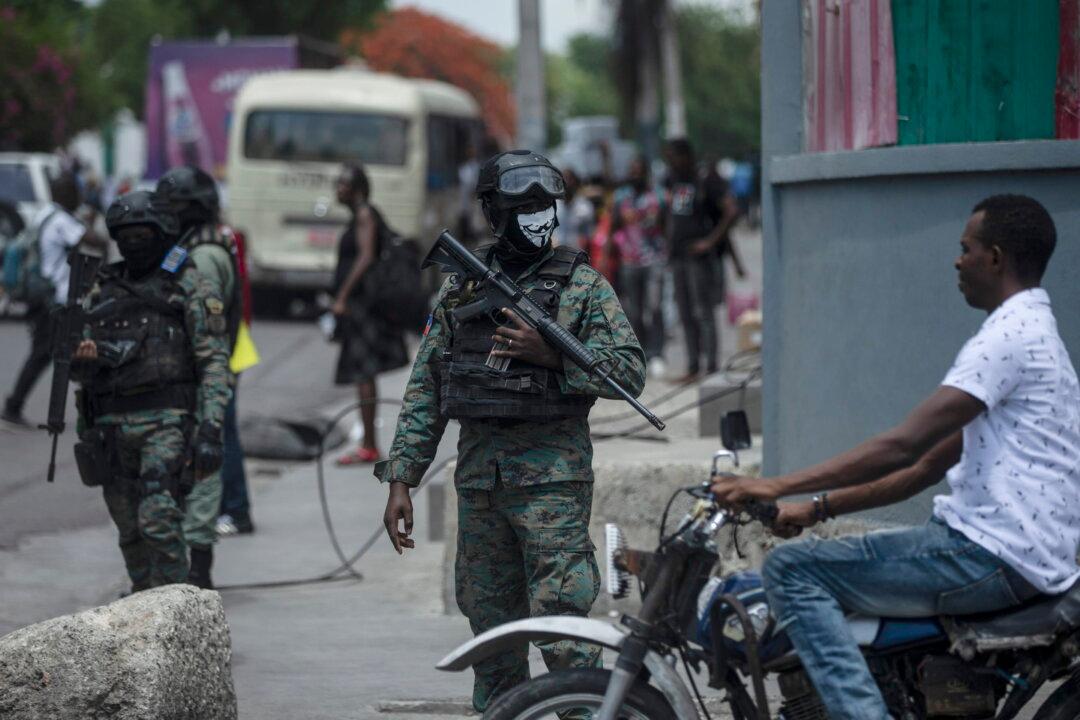PORT-AU-PRINCE, Haiti—Dozens of people have died in four days of gang battles in a violent neighborhood of Haiti’s capital, the latest eruption of bloodshed in a wave of increasing violence sweeping the country, local officials said Tuesday.
Jean Hislain Frederick, deputy mayor in Cite Soleil district of Port-au-Prince, said that the fighting erupted on July 8 in a clash between members of two rival gangs and that at least 50 people had died and more than 50 were wounded.





